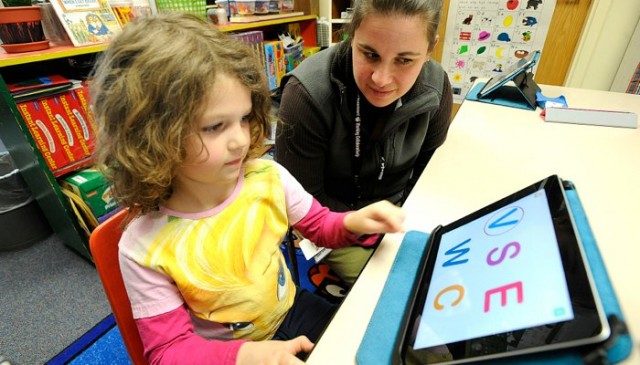Apple has been involved in the education market for decades, but the release of the iPad could be the most significant contribution the company has ever made. A new research study shows that Kindergartner students using iPads scored better on literacy tests than students that didn’t use the device.
I spoke with Mike Muir, Auburn School Department’s Multiple Pathways Leader, about the program and specifically about the focus on the iPad initiative.
“The objective has to be learning, not just getting the technology out there,” said Muir. “We are paying attention to app selection and focused on continuous improvement — we aren’t just handing equipment to teachers.”

The study, conducted in Auburn, Maine, randomly assigned half of the districts 16 kindergarten classes to use iPads for nine weeks. In all, 129 students used an iPad, while 137 students were taught without an iPad. Each of the 266 students were tested before and after the iPads were introduced into the classroom.
“Too many innovative programs don’t prioritize their own research, and even if they collect observations and stories later, they don’t make the effort to do a randomized control trial, like we did,” said Muir. “We wanted to make sure we could objectively examine the contribution of the iPads.”
According to the literacy test results classes using the iPads outperformed the non-iPad students in every literacy measure they were test on.
It’s not just about the test scores, but about the way the kids interact with the iPad and apps that make this program unique.
“We are seeing high levels of student motivation, engagement and learning in the iPad classrooms,” said Sue Dorris, principal at East Auburn Community School. “The apps, which teach and reinforce fundamental literacy concepts and skills, are engaging, interactive and provide children with immediate feedback. What’s more, teachers can customize apps to match the instructional needs of each child, so students are able to learn successfully at their own level and pace.”
